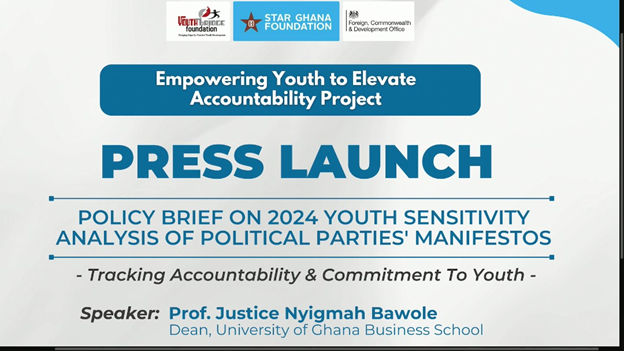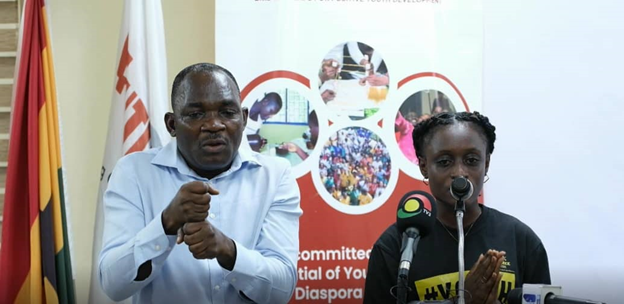ARTICLE AD
The Dean of the University of Ghana Business School (UGBS), Prof. Justice Bawole, has called for an independent monitoring framework to track the implementation of government’s youth-focused policies.
His call comes amid concerns about the effectiveness of past initiatives and doubts about the current administration’s ability to deliver on job creation promises for young people.
Speaking at a youth empowerment policy briefing organised by the Youth Bridge Foundation, Prof. Bawole emphasized the need for a systematic approach to ensure effective execution of youth policies, moving away from past inefficiencies.
The event, held under the theme “Empowering Youth to Elevate Accountability”, was supported by STAR-Ghana Foundation with funding from the Foreign, Commonwealth, and Development Office. It brought together over 250 participants, including students from four universities, development partners, youth representatives from the Ghana Disability Association, and members of the media.

Prof. Bawole’s remarks align with the Youth Bridge Foundation’s ongoing advocacy for the government to transition from policy promises to concrete, measurable actions in the 2025 national budget. A recent Youth Sensitivity Analysis of Selected Political Party Manifestos conducted by the foundation revealed significant gaps in youth-focused initiatives, raising concerns about the government’s ability to translate commitments into action.
Findings indicate that while the manifestoes of the current administration address youth-centric issues, they fall short in critical areas such as funding adequacy, measurable outcomes, and mechanisms for active youth engagement in policy implementation.

To ensure youth policies are not reduced to mere political rhetoric, the foundation and its partners are demanding greater transparency and accountability. Prof. Bawole stressed that youth policies should be embedded within established state institutions rather than being managed by politically structured agencies.
With Ghana’s youth becoming increasingly vocal about their expectations, the upcoming National Budget will serve as a critical test of the government’s commitment to implementing meaningful, youth-centered policies.

DISCLAIMER: The Views, Comments, Opinions, Contributions and Statements made by Readers and Contributors on this platform do not necessarily represent the views or policy of Multimedia Group Limited.

 
 
 
 
 
 
 
 
 

 19 hours ago
15
19 hours ago
15 

